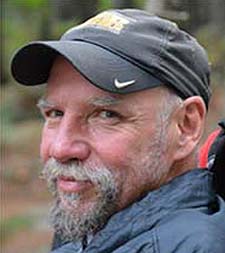“No one will ever accuse me of being professional!”
Have you ever looked back on things you used to say, and say publicly, and wince? I do. That “professional” thing is one of them. I was very proud of the fact that I was not a professional. At the time, I associated the word with being cold, calculating and clinical. “Professional” did not align with my beliefs on connection, culture and care.
I was wrong. Completely wrong.
Professional means to be “very competent” in a job. I agree. I fully support and promote expertise, proficiency and effectiveness for recovery coaches. So much so, we developed a 2-day professionalism curriculum for recovery coaches. Topics explored include accountability, appearance, demeanor, time management, etiquette, communication and reliability.
The concept of professionalism aligned with another environmental factor we were pressured to address. As the field of recovery coaching emerged, states and other certification bodies scrambled to certify, distinguish and vet this new role. Some titles align with addiction issues; some with mental health issues, some with both. Many of these titles have the word peer in them. I’m not a fan of the word peer. Credentialing confusion reigns in many places.
When we offer the CCAR Recovery Coach Academy© here in Connecticut, we are inundated with requests on how to get people certified in their respective states. We can’t possibly keep up with this – the requirements vary drastically.
Our solution?
We established the Recovery Coach Professional (RCP) designation to elevate the standard for recovery coaches worldwide. Our goal is to have the RCP designation recognized, trusted and valued in the field.
From our experience, we determined that recovery coach certifications focus mainly on the science. To earn most certifications and/or credentials associated with recovery coaching, candidates must accumulate a certain number of training hours, accrue a specified amount of supervised time serving in the role and pass a written test.
“Is a written test the best way to determine if an applicant has the necessary skills to serve as an effective recovery coach?”
I think not. I think recovery coaches need to be vetted. I do.
The Recovery Coach Professional (RCP) designation revitalizes a method used years ago to vet addiction counselors – an interview. To earn the RCP designation, the coach needs 60 hours of training that includes the CCAR Recovery Coach Academy© and Ethical Considerations for Recovery Coaches©. This assures some learning of the science. Then the RCP candidate undergoes a rigorous 45-minute interview with a panel of other RCPs to assess the individual’s art. The candidate responds to a series of questions and scenarios to assess the coach’s capability.
How well do they listen?
What’s the quality of the questions they ask?
Have they managed their own stuff?
Is the recoveree treated as a resource?
If the candidate does not pass they will receive written feedback on where they need to strengthen their approach. They are eligible to retake the interview in 90 days.
A couple more thoughts…
Why the “Professional” title? The word “professional” differentiates us from all the other credentials and certifications. As more entities (hospitals, providers, prisons) employ coaches, “Professional” signifies a level of competence and expertise. Plus, the recovery coaches we have interviewed appreciate the designation.
The RCP designation is available to all – people in recovery, families, friends AND allies. Just like each of our training programs, there is no prerequisite or length of time in recovery required.
For more information on the Recovery Coach Professional designation, click here.
For a list of Recovery Coach Professionals, click here.

In 2015, I finished a thruhike of the entire Appalachian Trail, a trek of 2,189.2 miles. It took 189 days and 6 pairs of boots. During that sacred time, my purpose in life became more precisely defined. I am, simply, to coach recovery. Recovery saved me from an early demise and brought purpose to my tattered life. I have learned that I’m a coach to my very core. I am blessed to put the two together. I started work at the Connecticut Community for Addiction Recovery (CCAR) in January 1999. I became the Executive Director of this recovery community organization in 2004. I have trained the CCAR Recovery Coach Academy© dozens of times and have a hand in modifying, improving and adapting various recovery coach curricula. I’m old enough now to start considering my legacy. This is one way for me to share lessons learned in my recovery, in my role as Executive Director and a trainer. When I engage with others, I present the same messages repeatedly. It’s time to write them down.
Phil “Right Click” Valentine
Recovery established 12.28.87

Wonderful! So glad you are pioneering the RCP approach. I admire your willingness to revisit and revise your already amazing program. I deeply commend your commitment to making sure we RCP’s have even more expertise, etiquette and skills necessary to help our clients in the most effective ways possible. Thank you so much for all you do for us! Go CCAR!! Looks like I am due for more training!
Best Wishes-
Mara duToit
Recovery Coach
Liberation Programs